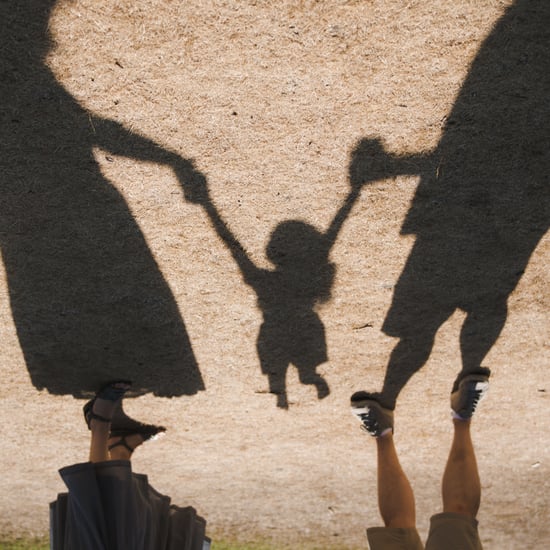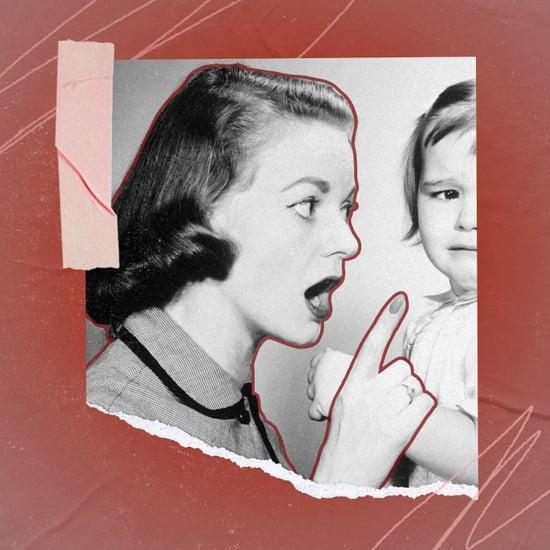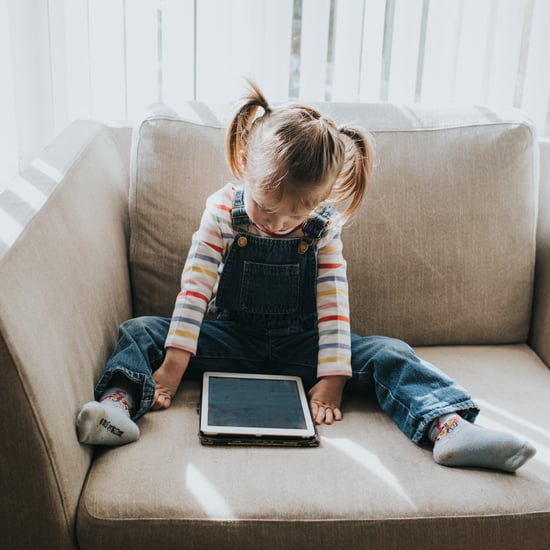How to Use the Holidays to Teach Thankfulness
How You Can Teach Your Kids the Joy of Thankfulness From a Young Age

Before my kids could talk, they knew how to sign "thank you." It was one of those things we wanted to teach them from a young age, like washing their hands after playing outside and never hitting or biting. At 3 and almost 2 years old, saying "thank you" is practically automatic — but it doesn't prevent the "give me this" or the "where's my next present?" that inevitably comes out of their mouths at the worst possible moments. My husband and I don't get offended by this (we know they're still learning), but we still think it's important to instill an attitude of thankfulness and gratitude in them, especially during the holiday season.
It's not just about common courtesy or politeness for its own sake. Being thankful and expressing gratitude — aka acknowledging appreciation for what one has or is given — actually make people happier and has been linked with greater health, relationships, and positive emotions. Of course we want that for our kids!
The holiday season, often centreed on gift giving, is the perfect time to teach your child how to be thankful for what they have. Start by explaining to your kids what thankfulness means. This can be done at any age; even teenagers will benefit from a quick refresher this time of year. Explain to younger kids that being thankful is feeling happy and appreciative for what we have. Remind older kids why it's important to think about what we are thankful for and express gratitude to others. Don't forget to model the behaviour yourself, calling attention to things your kids do that you appreciate or things you have that you are thankful for.
To start the conversation this year, I told my kids that being thankful means being happy about something that they have or that happened. Then, I told them three things I was thankful for that day (i.e., drinking coffee, watching a movie with them, calling Grandma). Finally, I asked them to tell me three things they were thankful for that day. It's OK that they need a little help or if they just repeat what you said — they are still figuring it out. Afterward, we prayed as a family together, thanking God for what we have. When my kids are older, I plan on encourageing them to journal about what they are thankful for and to have the thankfulness conversation often, not just on Thanksgiving Day.
Another way I'm teaching my kids to be thankful is by encourageing them to donate the toys they don't want any more to other kids. Right now, their playroom is overflowing with toys, and yet, they want to play with the same things every day. (Capes, superheroes, and cars, in that order.) Helping them make the decision to give away some of their toys — especially right before Santa brings them new ones — is a great way to teach them appreciation and gratitude for the toys they have left. Plus, it makes them feel good to give their toys away to either friends or kids who don't have any. You could also volunteer with your kids or give back in some other way to teach them to be grateful for the things they have.
Finally, keep reminding your kids to say "thank you." If a relative gives them a gift, they say, "thank you" even if they don't like it. If they ask for more presents on Christmas morning, gently remind them to be thankful for the one they just opened. After the festivities are over, encourage your child to write a thank-you card to express their appreciation in another way. If handwriting cards isn't your thing (I completely understand!), then you can help your kids call the gift giver sometime later to let them know how much they are enjoying the present. People love seeing how happy their gifts make you!
It's hard to remember to be thankful. But thinking about all the little blessings and comforts we have in this life (I like to do it while drinking coffee) brings a sense of peace and happiness that just feels good. No, I don't want my kids to be spoiled, but more than that, I want them to find genuine joy in their lives, no matter what. It all starts with giving thanks.






